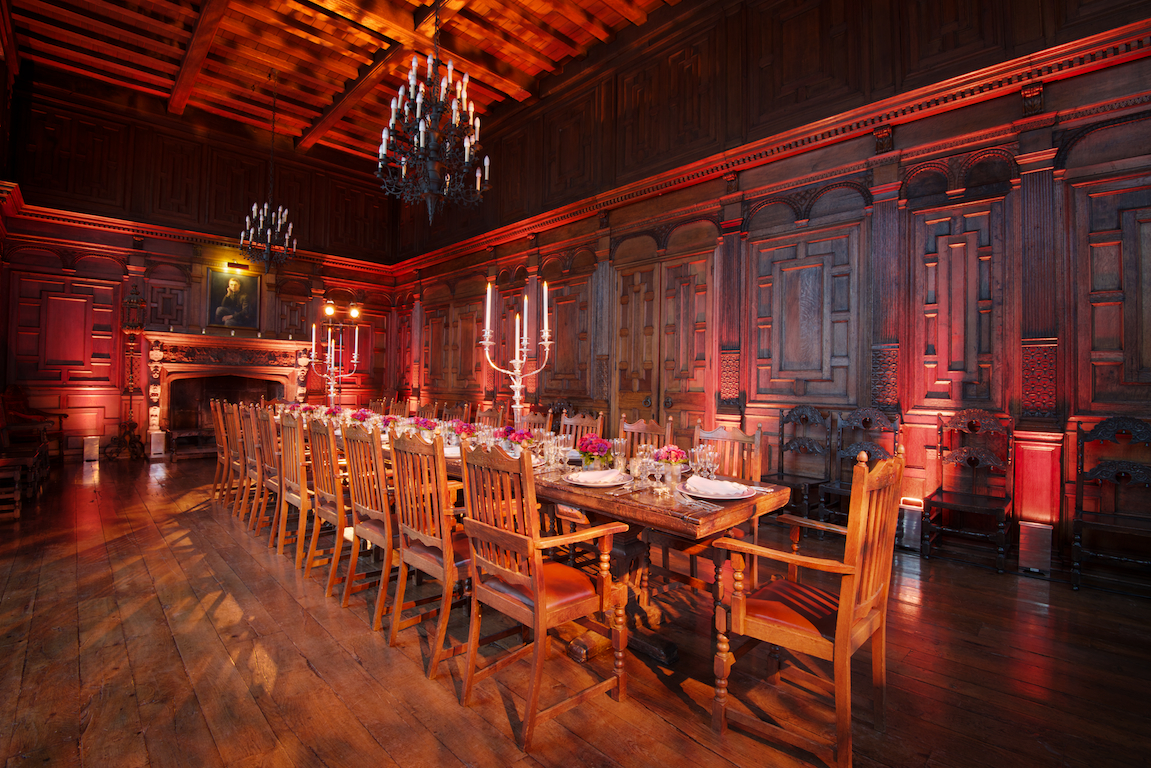When School's Out For Summer, Why Not Take Advantage Of Their Space?

What Are The Advantages Of An Academic Venue?
- Location, location, location
Academic venues are generally made to be accessible. They are located within easy to reach locations as throughout term time they will need to be accessed by students coming from all directions and utilising all forms of transport. For this reason, you will often find that these venues are located close to a train station, will be on major public transport routes and importantly, offer plenty of free on-site parking.
There also many examples of academic venues which are so centrally located, you would struggle to find another venue that is so close to the facilities and transport links that the nearby urban area provides. Examples of this are De Montfort University which is located within Leicester city centre, the London Metropolitan University, Harrow School and Coventry University, all of which offer convenient access to all that the surrounding cities offer.
- The facilities
Within academic venues you will find facilities that are definitely on the rise. The venues are wise to the fact that there is a market for hosting events out of term time and have ensured that their facilities match this as a result. Within many academic venues, you will find some of the most cutting-edge technology including built-in AV equipment and super-fast internet connections.
- The layout
Academic venues are designed for accommodating speakers and a large audience. Tiered auditoriums will ensure that everyone attending has a view of the stage and everyone can hear the speaker. They also allow for easy entrances and exits.
Rooms used as classrooms and seminar rooms located close to the auditorium will also make for the perfect break-out rooms during a conference, and can often be negotiated to be included within rates, making it easier for event planners to budget.
Which kinds of organisations prefer academic venues?
In Jayne Turnor’s experience, academic venues are typically favoured by
charities and associations. However, they are increasingly becoming popular with corporate clients who are a looking for a more cost effective solution.
Explaining why there is this change in take up of academic venues, Jayne believes it to be due to the following, “In an uncertain market, academic venues provide excellent value for money. They are also increasingly addressing their disadvantages and bridging the gaps to widen their appeal.”
What kind of events are suitable for hosting at academic venues?
According to Jayne, Conference Care usually find that their clients choose academic venues for hosting educational events: training, workshops and assessment days.
Are there any disadvantages to holding your event at an academic venue?
With anything there is always going to be disadvantages for some people. It depends on how you look at things. When it comes to hosting an event at an academic venue, the most glaringly obvious disadvantage is the availability. Of course, academic venues exist to provide education to students, so come term time you may find finding availability for your event is a little scarce. Jayne explains further, “Although academic venues have a lot to offer, availability can be restricted by the time of year, particularly if your event is residential.”
Jayne alludes to another possible disadvantage - “Accommodation standards are generally good, but not luxurious, so if you have a few VIPs you are looking to impress this can be a drawback.”
Another disadvantage for some academic venues is that they are located within self-contained campuses. Whilst these are useful for not ‘losing’ your delegates, it can be a disadvantage if you are looking for a variety of options for evening dining or entertainment, particularly if the event runs over a number of days.
Could these disadvantages actually be advantages to some clients though?
The answer is yes. Whilst availability may be scarce throughout the rest of the year, the summer holidays which run from June to September for most colleges and universities, provide a cost effective time of year for organisations to hold their events. Rather than looking to join the rush to book other types of venue at different times of the year, organisations can instead look to save money by booking their event at an academic venue during the summer. And whilst universities and colleges may consider the months from June to September to be “off-peak”, June and to some degree, July and September, are both fully functioning months in the working calendar. It is only really August where most of the UK tends to be in holiday mode. However, depending on the area in which you operate this might not be the case at all.
In terms of accomodation, whilst this will often be basic the positive of this is that it is available and in ample supply. For instance, at the University of Warwick in Coventry, there are over 1,600 bedrooms available on campus. The positive of this is when booking a conference or event you will not have to worry about finding nearby hotels or leaving it up to delegates to source their own accommodation. Instead you have rooms available all within a short distance of the facilities.
For academic venues located on self-contained campuses, you will often find that transport links are good. As mentioned when looking at advantages, colleges and universities are located so that they are in easy reach for students travelling from all directions, so this should not be an issue for your delegates.
ABOUT THE AUTHOR
Dean Ronnie works on behalf of Conference Care, an award-winning venue finding service and event management specialists.










